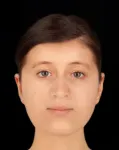The 2023 Warren Alpert Foundation Prize has been awarded to scientist David J. Lipman for his visionary work in the conception, design, and implementation of computational tools, databases, and infrastructure that transformed the way biological information is analyzed and accessed freely and rapidly around the world.
The $500,000 award is bestowed by The Warren Alpert Foundation in recognition of work that has improved the understanding, prevention, treatment, or cure of human disease. The prize is administered by Harvard Medical School.
Lipman will be honored at a scientific symposium on Oct. 11, 2023, hosted by HMS. For further information, visit The Warren Alpert Foundation Prize symposium website.
Lipman, who is currently a senior science adviser for bioinformatics and genomics for the Food and Drug Administration, is receiving the award for work he did in the 1980s and 1990s prior to and after becoming the founding director of the National Center for Biotechnology Information (NCBI), a position he held until 2017.
Lipman led the development of a powerful computational program called BLAST for the analysis and comparison of newly identified DNA and protein sequences against all known DNA and protein sequences. The tool transformed researchers’ ability to access and interpret DNA, RNA, and protein sequence data and propelled the fields of computational biology and molecular biology. While at the NCBI, Lipman also conceptualized and then oversaw the design and implementation of PubMed, the web-based database for biomedical literature used daily by millions of scientists, physicians, students, teachers, and the public. Today, NCBI houses multiple biotechnology databases and resources that, over the years, have reshaped biology, medicine, and other fields of science.
“At a time when computation was deemed an exotic pursuit by most biomedical researchers, David was prescient because he understood the potential of computation to propel biomedical science forward,” said George Q. Daley, dean of HMS and chair of the Warren Alpert Foundation Prize scientific advisory board. “His vision, creativity, and rigor have transformed how scientists analyze and share data and, indeed, how we do science.”
Lipman’s pioneering achievements not only democratized access to scientific information but also helped catalyze critical discoveries by enabling vital exchanges and collaborations among scientists in multiple fields of biomedicine and beyond.
“The foundational work of David Lipman in the field of computational biology and the tools that he envisioned and created have an impact that is nearly impossible to measure on the fields of biology, medicine, and beyond,” said David M. Hirsch, director and chairman of the board of The Warren Alpert Foundation. “His contributions exemplify the mission and vision of the Warren Alpert Foundation.”
Significance of the work
Over the past 40 years, advances in DNA sequencing, computation, and the internet have transformed biomedical research, public health, and the practice of medicine. Lipman developed many of the most important computational tools and infrastructure for making discoveries with these technologies.
In the 1980s, as understanding of DNA and genes began to accelerate, elucidating the evolutionary relationships across genes and proteins within and between species became a major focus of Lipman’s scientific curiosity and research efforts. Such knowledge is critical in elucidating evolutionary relationships that provide essential clues about the function of genes and proteins.
Early on, Lipman realized that the rapid emergence of new genetic sequencing data would require powerful and efficient computer programs to compare one DNA or protein sequence against all known sequences.
In a series of papers published between 1983 and 1990, Lipman pioneered the design of multiple methods for comparative sequence analysis. This culminated in the development of an algorithm called BLAST, described in a now seminal 1990 paper. Today, BLAST and subsequent programs, gapped BLAST, and PSI-BLAST remain among the most widely used tools in biology and medicine and are deemed among the most significant achievements in the field of computational biology of the past 40 years.
BLAST enabled understanding of the interplay between genes, biology, physiology, and the environment across organisms and has led to important discoveries in nearly all areas of biomedical research, from the molecular basis of cancer to identifying the source of a foodborne outbreak.
Furthermore, Lipman became one of the most ardent supporters of and key figures in the move toward open-access science. He was instrumental in the design of PubMed, the open-access scientific publication resource of the NCBI and the largest and most widely used resource for scientific research in the world.
As director of NCBI, Lipman oversaw GenBank, the world’s largest DNA and protein sequence repository, an international collaboration among the United States, Japan, and Europe. Under his direction, NCBI brought GenBank into the era of genomics and the internet, vastly augmenting its capabilities.
From the winner
“Through the creation of computational tools and information systems, my goal and that of the wonderful collaborators I've had the honor to work with has been to enable biomedical researchers to make discoveries. The scientists involved in the nomination and selection process have a deep understanding of the field and have themselves made some of the most important biomedical discoveries. So, this honor holds a special significance to me.”
-David J. Lipman
The prize
The Warren Alpert Foundation Prize recognizes the research of scientists throughout the world. Including the 2023 prize, the foundation has awarded more than $7.5 million to 79 individuals. Since the inception of the award in 1987, 12 honorees have gone on to receive Nobel prizes.
The 2022 Warren Alpert Foundation Prize was awarded to Drew Weissman, Katalin Karikó, Uğur Şahin, Özlem Türeci, and Eric Huang for pioneering discoveries into the biology of mRNA, for its modification for medicinal use, and for the design of mRNA-based COVID-19 vaccines that set the stage for other mRNA vaccines and a variety of mRNA-based therapies.
Other past recipients include:
Lynne Maquat and Joan Steitz for discoveries in the biology and function of RNA that reshaped the understanding of RNA’s various roles in healthy cell function and disease-causing dysfunction.
Daniel Drucker, Joel Habener, and Jens Juul Holst for elucidating the function of key intestinal hormones, their effects on metabolism, and the subsequent design of treatments for type 2 diabetes, obesity, and short bowel syndrome.
Edward Boyden, Karl Deisseroth, Peter Hegemann, and Gero Miesenböck for pioneering work in the field of optogenetics.
Francis Collins, Paul Negulescu, Bonnie Ramsey, Lap-Chee Tsui, and Michael Welsh for discoveries in cystic fibrosis.
James Allison, Lieping Chen, Gordon Freeman, Tasuku Honjo, and Arlene Sharpe for discoveries into cancer’s ability to evade immune surveillance, which led to the development of a class of cancer immunotherapies. Allison and Honjo shared the 2018 Nobel Prize in Physiology or Medicine.
Rodolphe Barrangou, Emmanuelle Charpentier, Jennifer Doudna, Philippe Horvath, and Virginijus Siksnys for CRISPR-related discoveries. Doudna and Charpentier shared the 2020 Nobel Prize in Chemistry.
Tu Youyou, who went on to receive the 2015 Nobel Prize in Physiology or Medicine with two others, and Ruth and Victor Nussenzweig for their pioneering discoveries in the chemistry and parasitology of malaria and the translation of that work into the development of drug therapies and an antimalarial vaccine.
Oleh Hornykiewicz, Roger Nicoll, and Solomon Snyder for research into neurotransmission and neurodegeneration.
Alain Charpentier and Robert Langer for innovations in bioengineering.
Harald zur Hausen and Lutz Gissmann for work on the human papillomavirus (HPV) and its role in cervical cancer. Zur Hausen and others were honored with the Nobel Prize in Physiology or Medicine in 2008.
The Warren Alpert Foundation
Each year the Warren Alpert Foundation receives between 30 and 50 nominations from scientific leaders worldwide. Prize recipients are selected by the foundation’s scientific advisory board, which is composed of distinguished biomedical scientists and chaired by the dean of Harvard Medical School. Warren Alpert (1920-2007), a native of Chelsea, Mass., established the prize in 1987 after reading about the development of a vaccine for hepatitis B. The inaugural recipient of the award was Kenneth Murray of the University of Edinburgh, who designed the hepatitis B vaccine. To award subsequent prizes, Alpert asked Daniel Tosteson (1925-2009), then dean of Harvard Medical School, to convene a panel of experts to identify scientists from around the world whose research had a direct impact on the treatment of disease.
END







